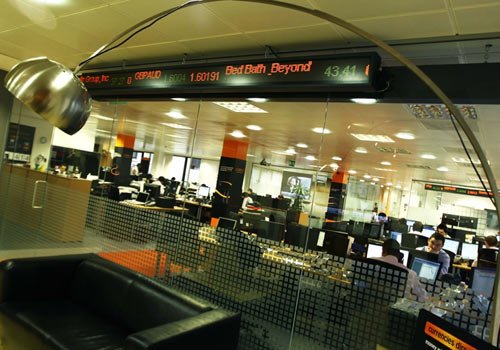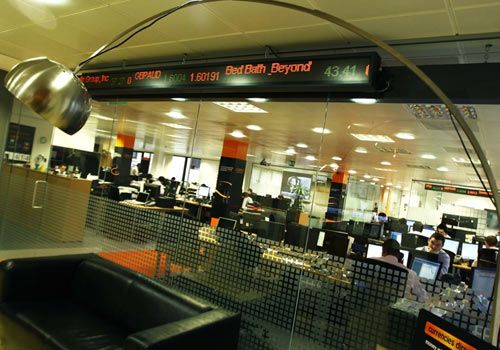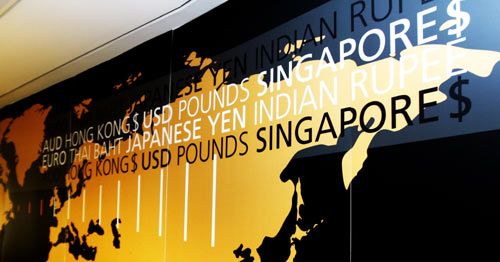The Central Bank Trade
Published by Gbaf News
Posted on October 17, 2012
6 min readLast updated: January 22, 2026

Published by Gbaf News
Posted on October 17, 2012
6 min readLast updated: January 22, 2026

Phil McHugh, senior analyst Currencies Direct
The financial crisis which erupted in 2008 is still hanging over the world economy, almost five years on. When the original crisis hit, which shook the global economy into cardiac arrest, governments and central banks had to step in to prevent a full scale meltdown of the financial markets. Since then we have witnessed an unprecedented array of monetary easing from central banks and a race to the zero bound as they cut interest rates aggressively. The aim was to get credit flowing again for businesses and consumers but lower interest rates were also aimed at influencing exchange rates and stimulating countries export sectors. While this is fine in theory, in practice easing by one central bank usually prompts action by another and we have seen large swings in most markets on the back of monetary stimulus as each country try’s to pursue domestic policy objectives at the expense of other nations by devaluing exchange rates. We now inhabit markets almost completely controlled by central banks, with the US central bank leading the way in unconventional measures.
Most recently the Federal Reserve sparked a speculative frenzy into risk by announcing QE3 in the form of unlimited $40 billion monthly purchases of mortgage backed securities (MBS), low rates until at least 2015 and the continuation of “Operation Twist” in an effort to stimulate labour market growth. The Fed has upped the ante on easing in their latest announcement and the move followed the ECB-POLICY-CENTENO-a52f21b9-8975-4dc5-9a21-8c5e8267aa43>ECB agreeing to fund unlimited purchases of Eurozone debt to protect struggling sovereigns. We have also seen similar central bank action from across the globe with Switzerland, Turkey, the UK, China and Japan. The sheer length, depth and scale of ongoing monetary easing is astounding and seemingly endless with the Federal Reserve’s latest escapade being dubbed “QEinfinity” in the financial markets.
In the aftermath of the Fed decision we saw a distinct rally into nearly all asset classes as a defined move into risk abounded driving the USD lower across the markets. The unprecedented action has once again reignited a fierce debate that QE3 will exacerbate currency related conflict as the market jumps out of the risk-haven USD into risk-based assets with the hope of riding higher. Commodity based currencies and emerging market currencies fear the brunt of this shift into risk with an appreciation on their domestic currencies. Such appreciation can lead to the introduction of, or at the very least the threat of measures to stem the unwanted appreciation. 
Back in 2010 Brazilian finance minister Guido Mantega coined the phrase “currency wars” in anticipation of QE2 in the US two years ago. Mantega argued that “besides the direct measures of trade protectionism in the US, we now have quantitative easing, which is an indirect form of protectionism because it debases the dollar by reducing its value and one of the objectives of a weaker dollar is it can lead to greater American exports”. Brazil implemented a number of capital controls to limit the upward momentum of their currency and was joined by Mexico, Peru, Columbia, Taiwan, Korea, Poland, South Africa and Russia. These counter moves were to be expected, and were actively encouraged by the IMF amid concerns of further USD debasement.
As it transpires the Brazilian real is now much weaker against the USD than back in 2010 and in fact risk oriented emerging market currencies have seen an overall retreat. It could be argued that the emerging markets are winning the currency war as their weakening currency values lead to a competitive advantage and a battle won. However this would cloud the main reason for the downturn in demand being that the world economy has fallen prey to a coordinated economic slowdown with a cooling China and uncertain Eurozone. In addition the steps taken to curb a stronger currency will have certainly had an impact.
The speculative frenzy that surrounded QE3 has once again raised the chatter of currency wars but it is arguable whether this is valid.Since QE3 we have seen a shift out of USD and it is notable that currencies which have already intervened or threatened to do so have underperformed, whereas those with a lack of intervention history or appetite for intervention have gained. The Mexican Peso and the Czech Koruna have lost the most ground prompting the governor of the Czech Central Bank to raise the prospect of forex intervention, whereas Mexico’s Central Bank has signalled that it is happy with currency appreciation. The Brazilian real has weakened due to Alexandre Tombini‘s dogged stance on protecting currency appreciation and the Yen has been avoided due to its frequent intervention activity and the anticipation of more. The Indian Rupee has been a popular choice due to reforms from the Indian Government to attract more foreign direct investment (FDI) and is seen as unlikely to intervene to stem any appreciation in the Rupee. Conversely, the Chinese Renminbi has just hit a 19 year high against the USD, appreciating over 2 per cent in the last month since QE3. 
We have a schizophrenic market that is reacting to the central bank stimulus and searching for ever decreasing opportunities. Ironically central bank action is endeavouring to drive risk in a market full of fear and it is this fear which is pegging back momentum in the currency markets.Markets are jostling as a reaction to the Fed’s easing and swings in and out of currencies as a result. The scale of QE3 has naturally caused a knee jerk reaction in the markets due to its audacity and open-endedness. The question is whether the Federal Reserve,the European Central Bank and other central banks maintain this systematic boost of stimulus and will it continue to drive the markets higher in spite of the severe economic headwinds.
The dynamics of central bank interventions is driving the focus away from fundamentals and onto what the central banks do next. The markets are facing a psychological fight on the credibility of global central banks to continue driving sentiment over and above the underlying ‘real’ economy. The foreign exchange market is struggling to adjust to this environment as investors try to gauge how to make money in a market driven by the central banks and fear with tightening interest rate differentials and even tighter currency ranges. 
In the months ahead we will learn more about the known risks and uncertainties in the market such as the Eurozone crisis, the US election and the approaching US fiscal cliff. A clear-out of the uncertainties could change the dynamics by fuelling momentum into currencies and even more into risk. This would certainly raise the tensions on a continuation of central bank action and increase friction between competing currencies.
Phil McHugh is a senior analyst at leading European FX specialists, Currencies Direct.
Explore more articles in the Top Stories category











